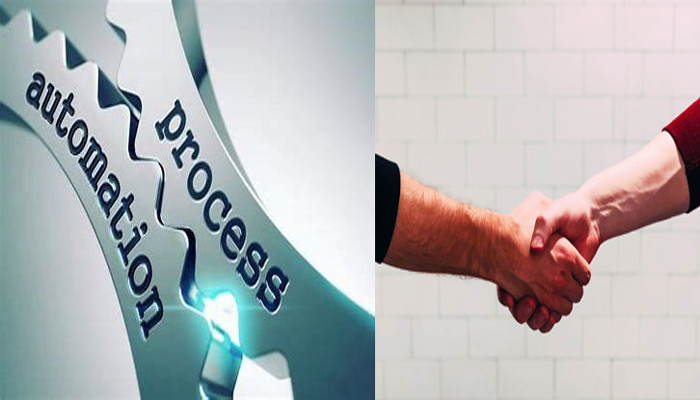
Operational Excellence is the New Customer Intimacy
It was almost thirty years ago that Michael Treacy and Fred Wiersema, co-authors of The Value Disciplines of Market Leaders, introduced one of the great strategy frameworks of all time. They argued that market leaders achieve competitive advantage by excelling in one of three value creation disciplines:
- Product Leadership, beating out competing offers with better performance
- Customer Intimacy, beating out other offers with better experiences
- Operational Excellence, beating out other offers with better prices
Winning companies in their view took one of these three to an extreme, dramatically separating themselves from the competition, while aiming for “good enough” on the other two.
Examples of this strategy abound. In the automobile industry, Tesla focuses on product leadership, Lexus on customer intimacy, and Toyota on operational excellence. In financial services, Progressive focuses on product leadership, USAA on customer intimacy, and PayPal on operational excellence. In retail stores, REI focuses on product leadership, Nordstrom on customer intimacy, and Walmart on operational excellence. You get the idea.
But here’s the thing. In this new world of digital transformation, the reward for differentiating on operational excellence is no longer just a better price; it is now also a better customer experience. Amazon is the canonical example. Their algorithms for operational excellence have processed all the log files they can get their hands on as a means for creating probabilistic models to serve you more efficiently and more effectively. They don’t know you at all, but if feels as if they did. And so, if you are like most people, you have signed up for Amazon Prime—heck, you might as well just send them your paycheck and be done with it. How does another retailer compete with that?
Tesla’s operationally excellent strategy is creating similar challenges for the auto industry. Their method of maintaining your vehicle remotely via software instead of taking it into a shop is another example of a great customer experience—just ask a Tesla owner how they feel about their car (and then be prepared for a tale only slightly shorter than the Ancient Mariner’s). Uber, despite all its cultural woes, is still an amazing customer experience, not because you had a great chat with the driver (although that can happen) but because its operationally excellent software system makes getting from A to B on time both predictable and transparent. Of course, some companies still do go the extra mile and pile on a second layer of love. Airbnb is not only an operationally excellent system, it also goes out of its way to promote the forming of personal relationships between hosts, guests, and adjunct service providers. Zappos is famous for doing the same thing for shoe buyers, as is eHarmony for match-making.
This is all great for the customer, but it puts serious pressure on your company if you have yet to embrace digital transformation. You are not just giving away cost advantages to next-generation competitors who are leveraging automation to accomplish what you are doing manually. You are also silently disappointing your customers who increasingly expect to meet their everyday needs digitally through self-service rather than call centers or store associates. To be sure, there will always be value to the human touch, but that touch needs to be reserved for truly complex situations beyond what can be readily automated. Otherwise you’re just making your customers wait for you in a queue.
That’s what I think. What do you think?
Follow Geoff on LinkedIn | Geoffrey Moore Mailing List
__________________________________________________________________________
Geoffrey Moore | Zone to Win | Geoffrey Moore Twitter | Geoffrey Moore YouTube
Sr. Director, Liquid Filtration | Bioprocess, Diagnostics, Wine, Water, Re-use
5yRespect the buyers' time. Be easy to work with. In mature, B2B or industrial businesses sales / account managers often serve more as internal consultants which mine the organization on behalf of their customers. Leaders use modern IT tools (CRM, data, etc.) to make it easier for customers to purchase.
100% agree. We @Carbon are leveraging our cloud connected industrial 3D printers to bring a refreshing new operational excellence + customer service experience for our customers.
CRO | Growth Advisor | Multiple Exits - $5B+
5yGreat read; as companies build their ROI for automation, the impact on #branding, #customerexperience, #employeeengagement and #revenue are often left out of the equation. If Apple has taught us anything, it is that a brand built on a great customer experience facilitated by engaged employees creates vast amounts of revenue.
Great insight! Another example is how Southwest Airlines operational excellence strategy also provides a differentiating digital customer experience. Maybe it’s time for a new strategic framework that takes into account the overlap of value disciplines caused by digital transformation.
Managing Partner | Sales Acceleration & Transformation | Key Account Management, Complex Sales, Sales Management | AKAM Board Member, founder of the KAM Club France
6yOne can tale the thinking one step further by observing champions of Lean / Operational Excellence outside the famous names (over)present in the media. Then, once can observe that a leading-edge Lean approach enables both Customer Intimacy and Product Leadership. This being said, very few companies have the culture and the guts to take Lean to this level of achievement.